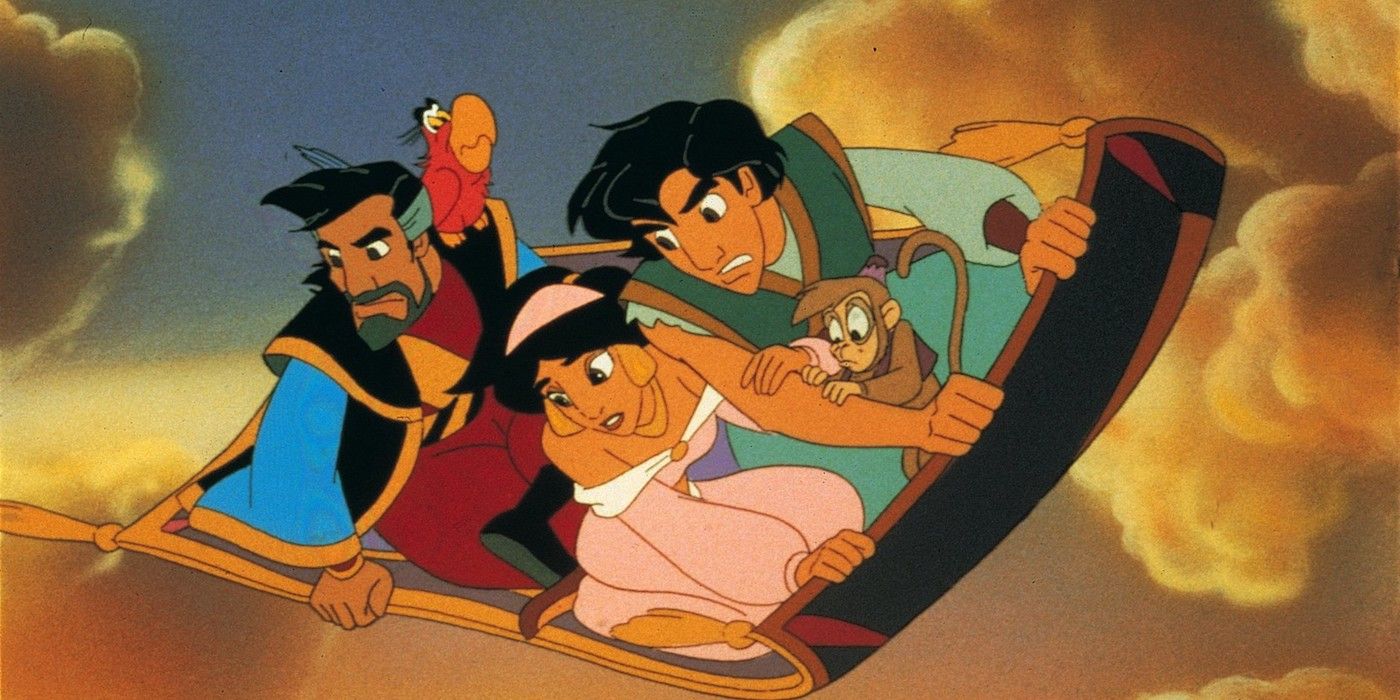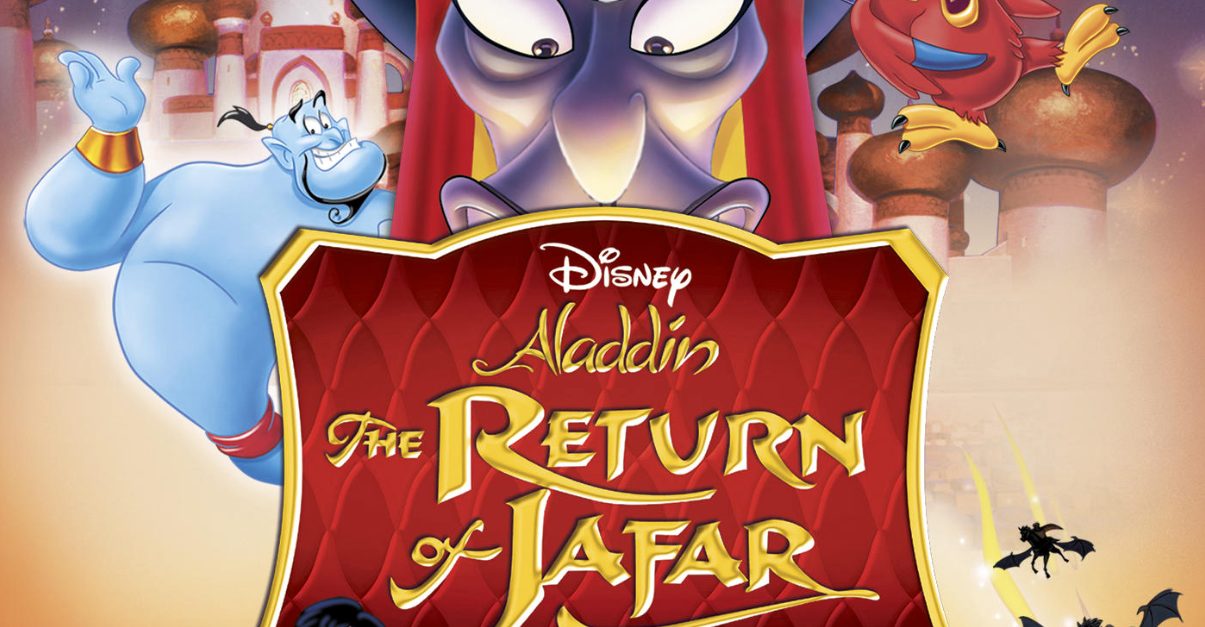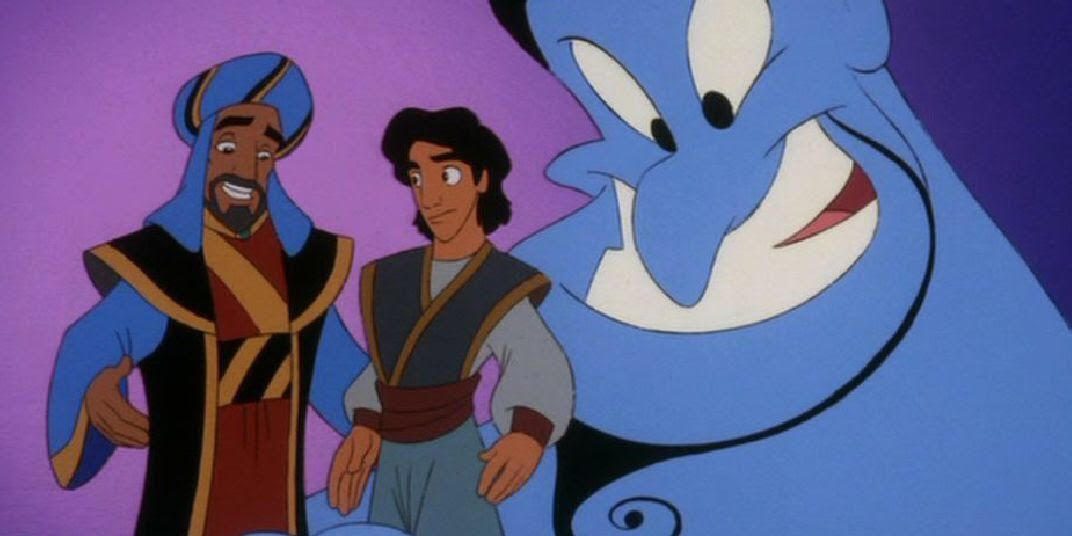Aladdin and The Lion King were both animated classics of Disney's new renaissance era in the '90s, but they also spawned a brief trend of releasing cheaply made, low-effort direct-to-video sequels to Disney's hit films. Despite the negative reputation of this wave of sequels, the ones that followed up the original animated Aladdin actually had several redeemable elements. The third film, in particular, is well liked for its music and plot.
It was recently announced that a sequel to the live-action Aladdin remake is in the works. The filmmakers have already said they aren't planning to adapt either of the original film's sequels, but maybe they shouldn't dismiss the possibility so quickly. Here's a look at why Aladdin's animated direct-to-video sequels may be underrated gems.
The Return of Jafar
The Return of Jafar sees the first film's villain attempt to take on Aladdin and Jasmine again, this time with the aid of his own genie powers. Though initially hamstrung by his dim-witted new master Abis Mal, Jafar eventually wreaks havoc on his former adversaries, as well as the city of Agrabah as a whole. Meanwhile, Iago, Jafar's former parrot sidekick, attempts to do a heel turn and become an ally of Aladdin, which is increasingly difficult as the power and influence of the returned Jafar grows.
The Return of Jafar in many ways attempted to replicate some of the first film's success, namely by bringing back its villain and utilizing some of the same music. It didn't exactly reach the same heights, but it was still successful in its own right. Its incredible retail revenue also showed there was a desire to continue to see the film's characters in all new adventures. Thus, the sequel served as a pilot for a new Aladdin animated TV series, which picked up after the events of the movie. One element where the movie's reputation as a cheap, cost-cutting cash-in was especially obvious was in its casting. The zany Robin Williams, who voiced the Genie in the original film and was clearly one of its most well-known stars, was instead recast with Dan Castellaneta, the voice of Homer Simpson.
The King of Thieves
The third and final Aladdin film had a soon-to-be-wed Aladdin attempting to reunite with the father he had long-believed to be dead. Instead, Aladdin learned his dad, Cassim, joined a gang of thieves long ago on a mission to obtain the Hand of Midas. Cassim was hoping to use its gilding powers to save his family from their dire poverty. Unfortunately, the Forty Thieves, the group that Cassim became involved with, had recently attacked the royal family of Agrabah, turning Cassim into an outlaw. Thus begins an adventure in which Cassim is torn between the love of his son, his status as a wanted criminal and his quest for the treasure that started him on his current path in the first place.
One of the things that the threequel did right was bring back Robin Williams for the role of Genie. It also used an original score and a soundtrack of new songs. The plot featured a strong theme of redemption and unity, with Aladdin finding a link to his old family and life as he finally embarks on his new one with Jasmine. These story elements gave Aladdin's story a sense of finality. Plus, the film had just as much of a sense of adventure and whimsy as the first movie. It's because of this that the film is so highly regarded and is one of the more well-received Disney direct-to-video sequels. If there's a live-action Aladdin 3, it should definitely be based on this movie.



